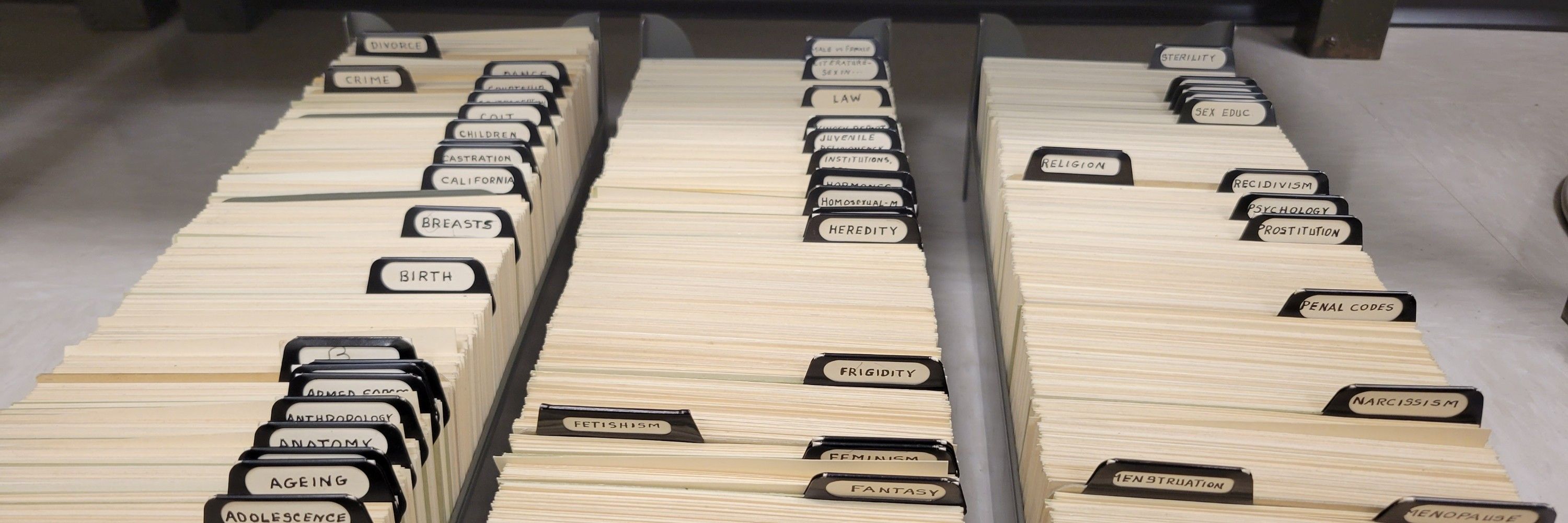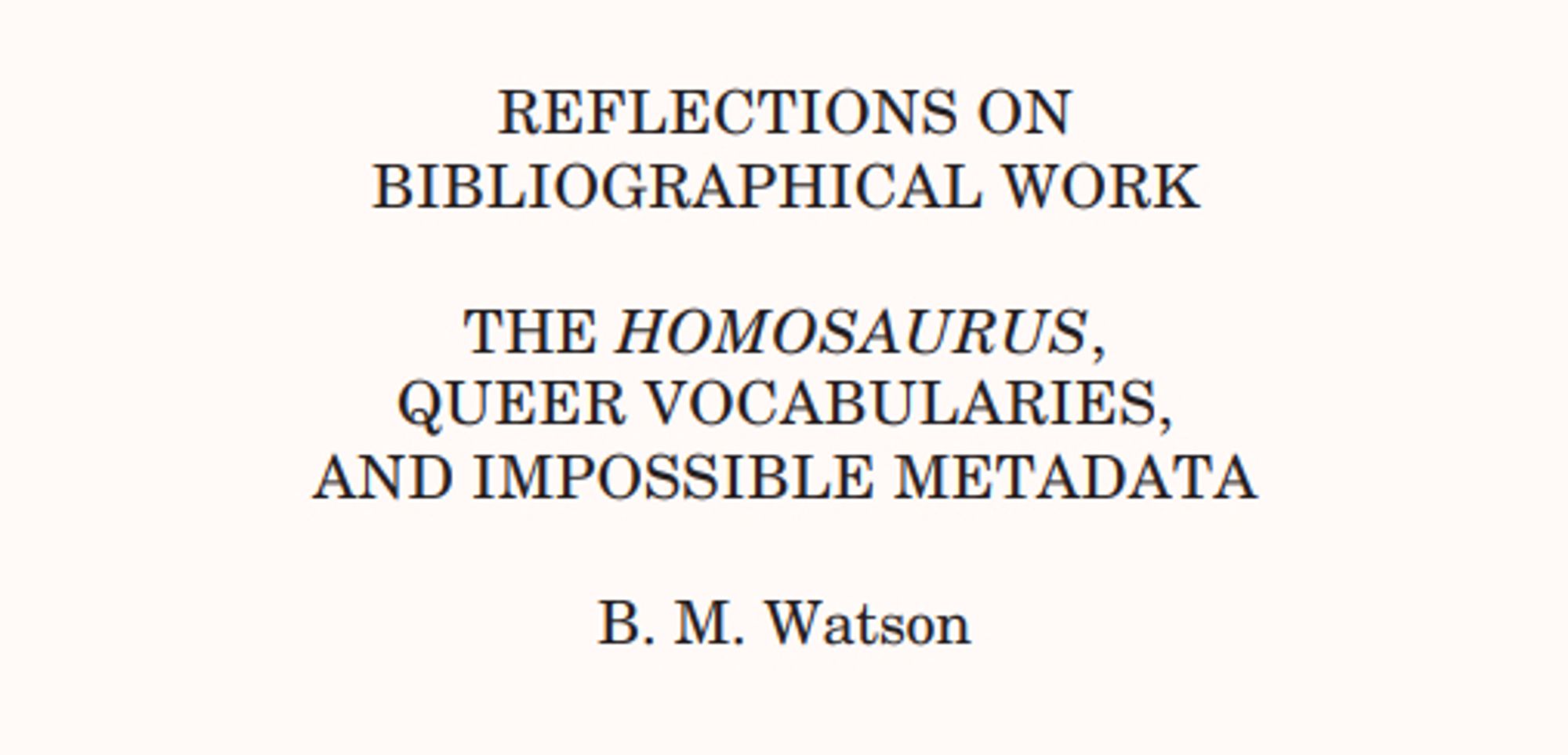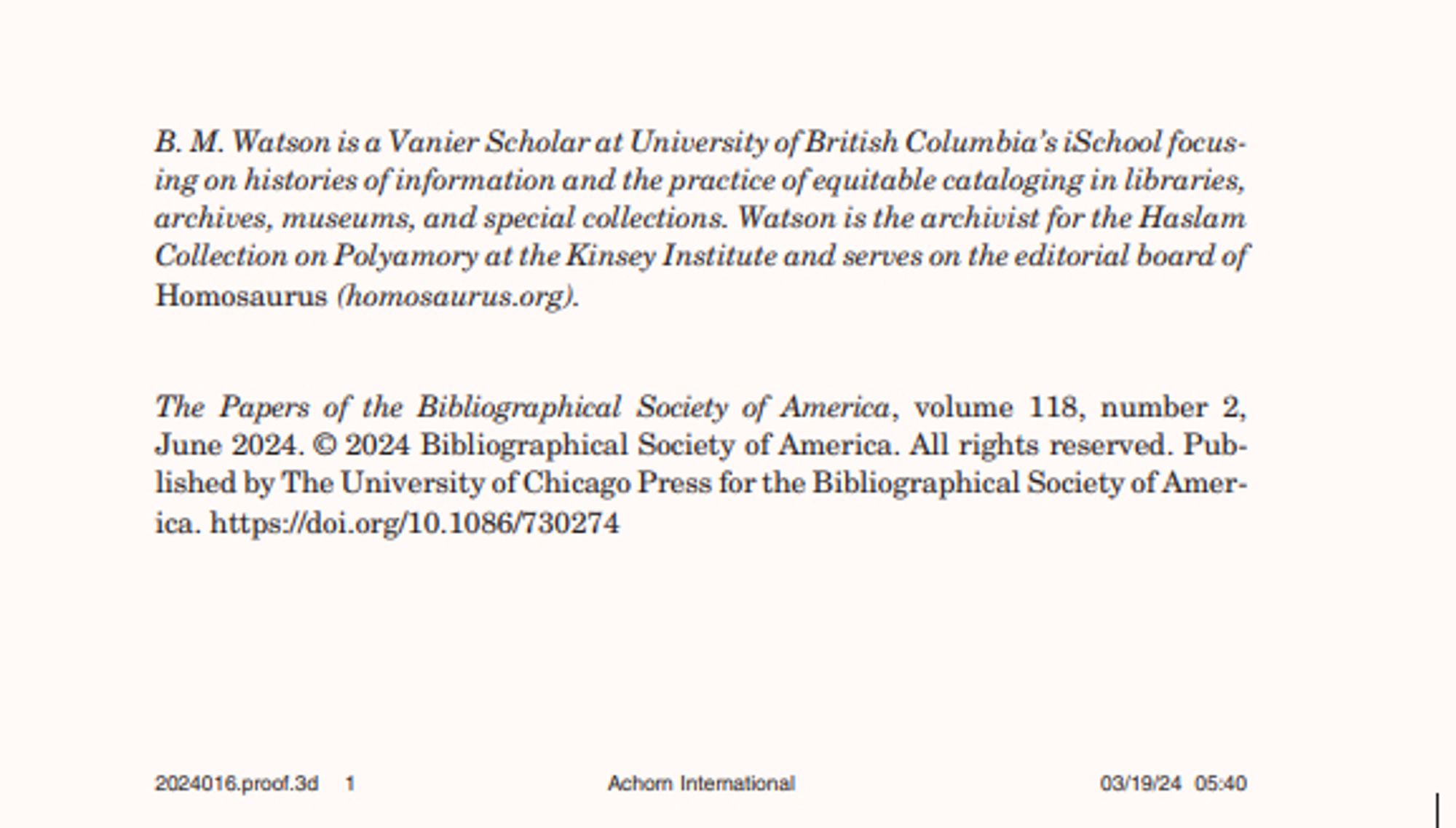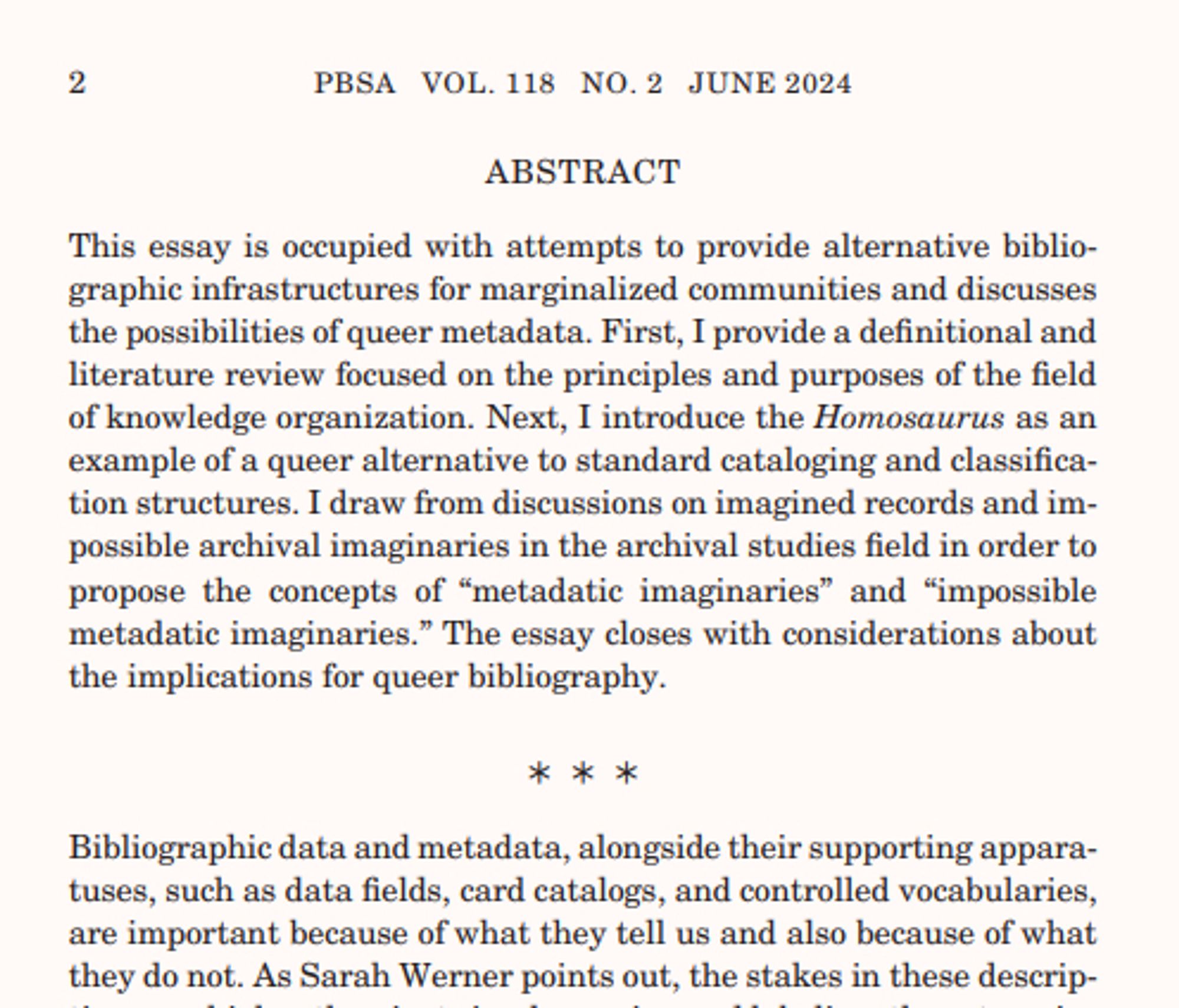
BW
bri watson 🐝
@brimwats.bsky.social
they/m | brimwats.com
• "transmorgifyied high-octane f*glord"
• background: #HistSex & #HistBook
• now: Vanier Scholar @ UBC working with libraries, archives, museums & how they describe + serve marginalized folks.
• HistSex.org, Homosaurus.org, Q+TMDC
693 followers452 following680 posts
this was one of the hardest things i've ever written (36 drafts!! 36!!) but I am truly so excited for it to be out in the world soon. biggest props to @malcolmjnoble.bsky.social@sarahpyke.bsky.social@wynkenhimself.bsky.social for making it happen!




BW
bri watson 🐝
@brimwats.bsky.social
they/m | brimwats.com
• "transmorgifyied high-octane f*glord"
• background: #HistSex & #HistBook
• now: Vanier Scholar @ UBC working with libraries, archives, museums & how they describe + serve marginalized folks.
• HistSex.org, Homosaurus.org, Q+TMDC
693 followers452 following680 posts